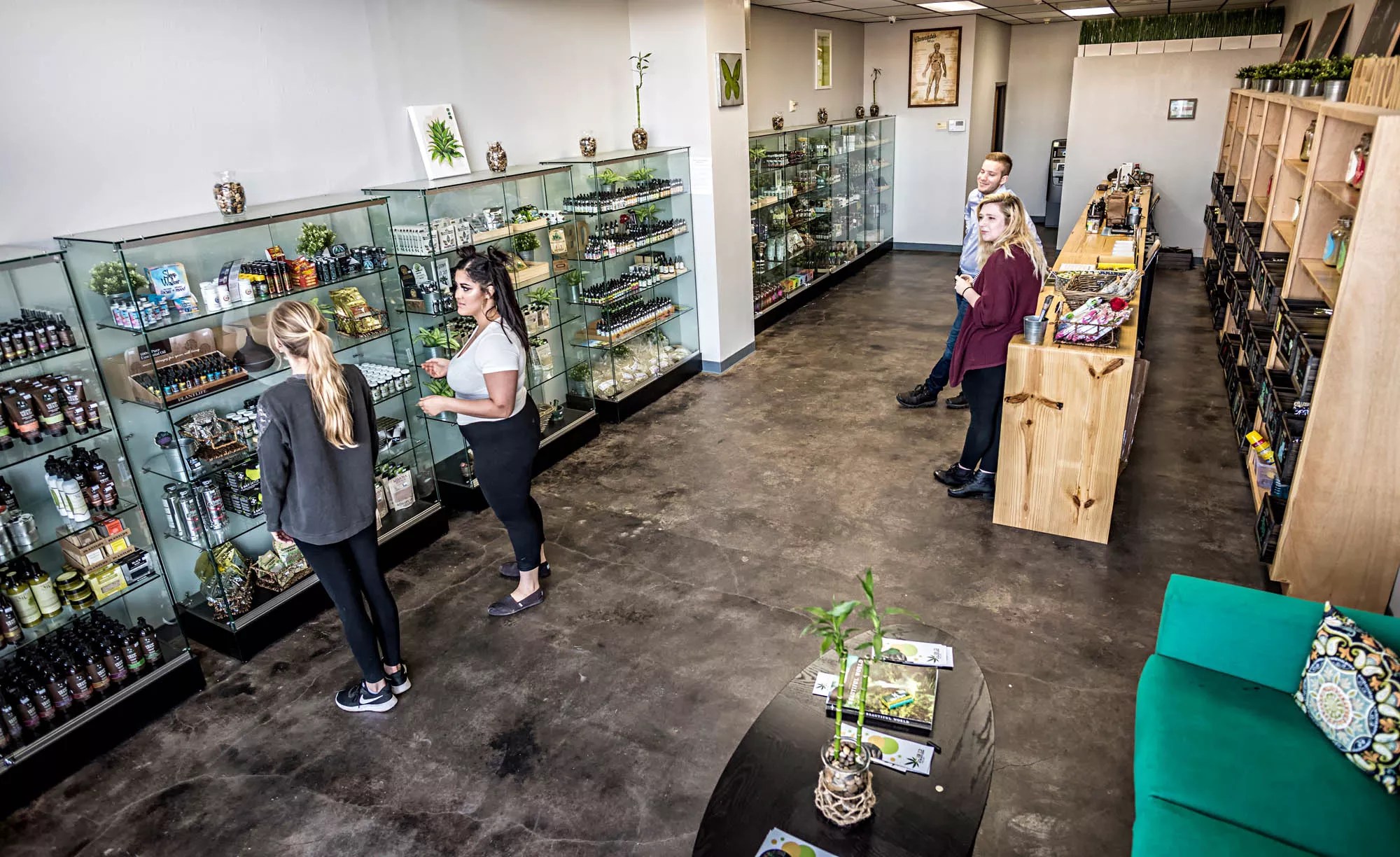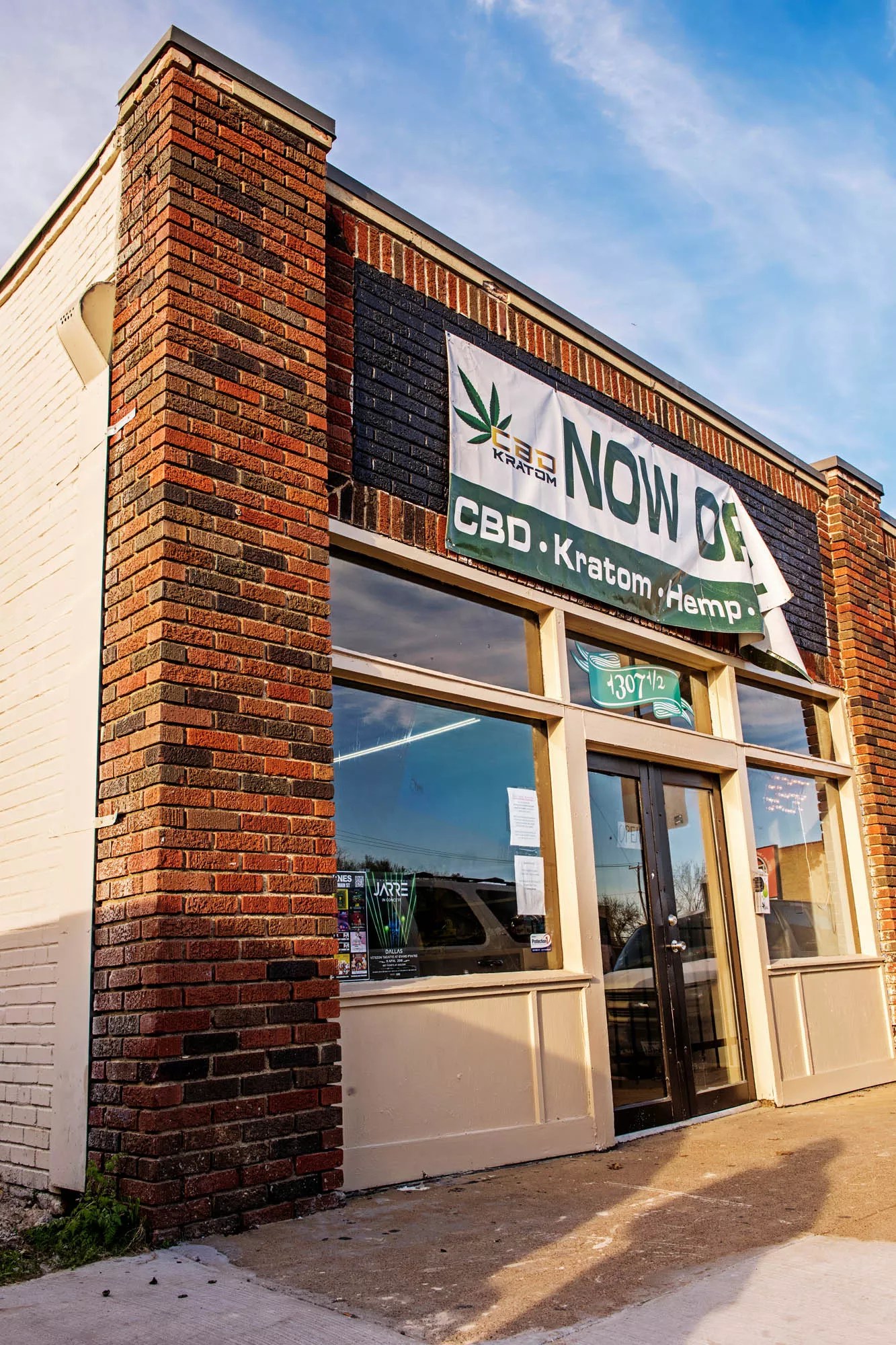
Danny Fulgencio

Audio By Carbonatix
State health inspectors could confiscate food products that say they contain CBD oil under new procedures proposed by the Texas Department of State Health Services, raising howls from medical marijuana supporters and threatening to stifle a growing number of shops peddling products with the oil.
They’ve popped up all over Dallas: shops, evocative of dispensaries in states with legalized marijuana, selling food and supplements boasting of the benefits of CBD oil derived from hemp in smoothies, brownies or capsules. The products contain trace amounts of tetrahydrocannabinol, or THC, less than the federal limit of 0.3 percent. THC is the main compound in marijuana that gets users stoned. Cannabidiol, or CBD, doesn’t have that effect, but some say it relieves pain, anxiety, spasms and a host of other ailments.
The Health Services Department’s new rules hint at a potential crackdown on products containing any amount of CBD or THC.
Lara Anton, a spokeswoman for the DSHS, says the proposed procedures aren’t new rules and would apply to foods that have CBD added to them. Any food product – Anton said she’d try to get back to the Observer about whether the rules applied to supplements as well Monday afternoon but hadn’t done so at deadline – that has “a statement on the label, in the ingredient statement, or any other material indicating that the products contains phytocannabinoids, CBD or THC,” would be subject to confiscation during a DSHS inspection.
Under the state’s proposal, products that contain “hemp byproducts” but don’t list CBD or THC in their ingredients labels would not be affected.
Dafna Revah, the co-owner of two shops named simply, if inelegantly, CBD Kratom that sell CBD products on Oak Cliff and Knox-Henderson, says she doesn’t know what she’ll do if the procedures go into effect after a public comment period that ends April 16. She doesn’t understand why the DSHS would target products that are appropriately labeled.

Dafna Revah sells kratom in Oak Cliff.
Danny Fulgencio
“It’s so weird because that seems to be the opposite of what everyone always says is best for people,” Revah says. “They’re the Texas Health and Human Services Department. You would think that they would want things to be clearly labeled as to what’s in it. It’s kinda counterintuitive that they would go after stuff that’s labeled.”
Since Revah found out about the proposed changes Monday and posted them to CBD Kratom’s Facebook page, the store’s customers and fans have rallied around the shop and begun sending comments to the health department, she says.
“It kinda just seems like it’s something that’s accepted now,” Revah said. “We’ve never had a problem at any of our Dallas stores. We’ve never had anyone upset at either store in Dallas.”
Brent Rodgers, the founder of Roots Juices, which has two locations in Dallas that sell CBD smoothies, edibles and supplements, said he would pull offending products off his shelves if directed to do so by the DSHS, but he believes he’s legally allowed to sell them.
“If they come in and say, even if it passes [the federal government’s] arbitrary test, you still can’t sell it, at that point, even though they don’t have regulatory authority over us, we’d have to [stop selling the products], or I could be prosecuted,” Rodgers says.
In a letter to the DSHS sent on behalf of the Texas Cannabis Industry Association, attorney Richard Cheng of the law firm Dykema Cox Smith echoes Rodgers’ claims. Under the state’s compassionate use act, which allows patients with intractable epilepsy to use CBD oil and CBD oil products with as much as 0.5 percent THC, Cheng argues that the Texas Department of Public Safety, rather than DSHS, “is the designated state agency to govern issues related to cannabis and cannabis related products.”
Rodgers says if he’s forced to take any of the products that he sells off Roots Juices shelves, he will sue the DSHS.
“I would happily invest time and money into pursuing legal action against the state,” he says.